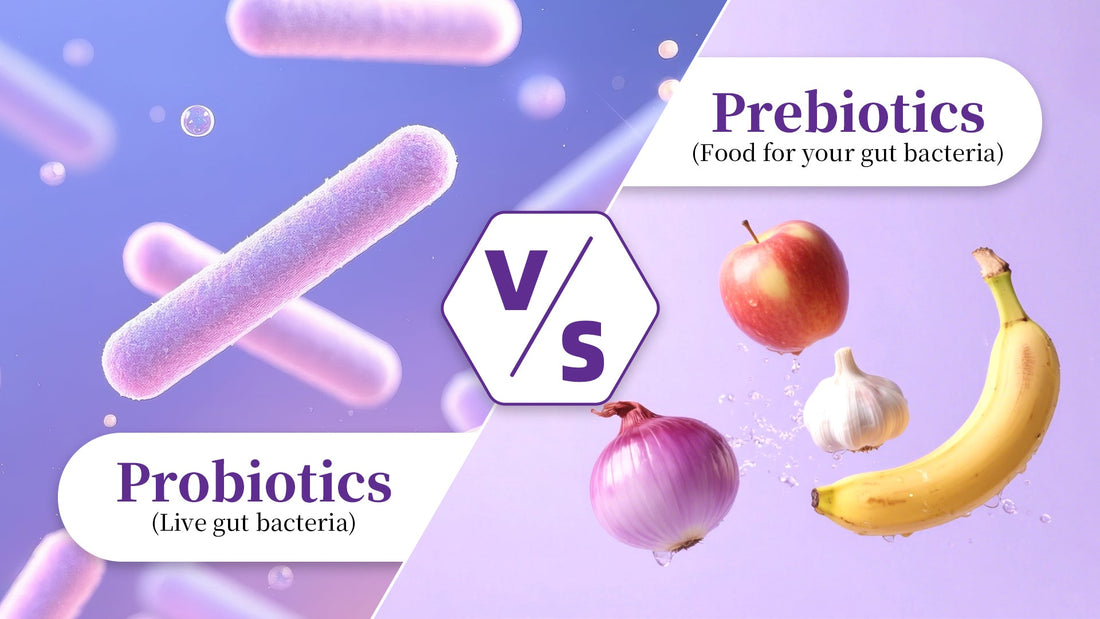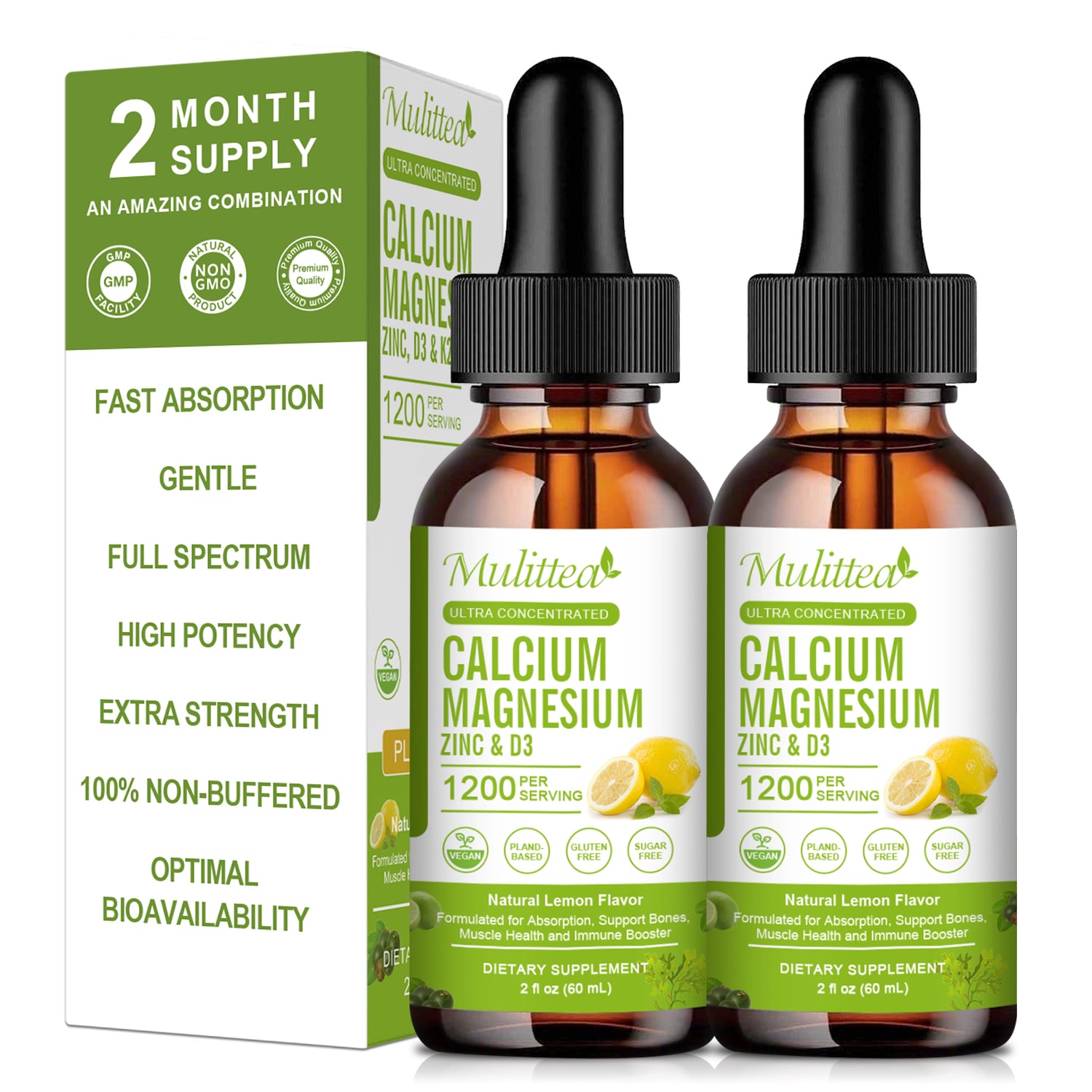
Prebiotics vs. Probiotics: A Simple Guide to Supporting Your Gut Health
Share
Have you ever walked down the supplement aisle, staring at bottles of probiotic supplements, and wondered what they actually do? Maybe you've heard the terms "prebiotic" and "probiotic" thrown around and felt a little confused. Many people mix them up, but understanding the difference between prebiotic and probiotic is a game-changer when it comes to supporting your digestive system. Think of your gut as a bustling city. It's home to trillions of tiny residents—your gut microbes. To keep the city running smoothly, these residents need the right resources. This article will break down exactly what probiotics and prebiotics are, how they work together, and how you can use them to feel your best.
What are Probiotics and What Do They Do?
Let's start with the basics. So, what are probiotics? Simply put, probiotics are living microorganisms, or "good bacteria," that, when consumed in adequate amounts, can provide a health benefit to their host. They're the friendly tenants in your gut city. You can find them naturally in fermented foods like yogurt, kefir, and sauerkraut, or you can take a probiotic supplement.
So, what do probiotics do? They help maintain a balanced and diverse gut microbiome. A well-balanced gut is associated with a range of benefits. It's no wonder that many people seek out probiotics for gut health to help with digestive regularity and comfort.
Probiotic Benefits Beyond the Gut
While we often associate probiotics with digestion, their influence can extend to other areas of wellness. A healthy gut is a key part of your overall well-being. People often ask, "are probiotics good for gut health?" and the answer is yes, they can be. Some people even wonder, "can probiotics help you lose weight?" While there is some promising research in this area, it's not a magic bullet. Probiotics are best seen as one part of a balanced, healthy lifestyle.
Prebiotics vs. Probiotics: What's the Real Difference?
This is where the confusion often comes in. The key distinction is simple: probiotics are the live bacteria, and prebiotics are the food for those bacteria.
What are Prebiotics?
Prebiotics are non-digestible fibers that pass through your upper digestive system and become food for the beneficial bacteria in your gut. Think of them as the fertilizer that helps your garden of good bacteria flourish. Common prebiotic-rich foods include onions, garlic, bananas, and whole grains.
How They Work Together
The relationship between prebiotics vs. probiotics is symbiotic. You can take a high-quality probiotic supplement to add good bacteria to your gut, but if you don't feed them properly with prebiotics, they won't thrive. That’s why a healthy diet rich in both is a smart approach.

Choosing the Best Probiotic and Knowing if It's Working
With so many options, how do you know what to look for? When you’re trying to find the best probiotic for gut health, consider these factors:
- Diverse Strains: Look for a supplement that contains a variety of bacterial strains.
- CFU Count: Check the Colony Forming Units (CFU) count, which indicates the number of live organisms in each serving.
- Third-Party Testing: A reputable product will be third-party tested for quality and purity.
When you're exploring options, it's helpful to look for a comprehensive formula. For example, some products, like Mulittea Probiotic Capsules with Prebiotics, combine multiple probiotic strains with prebiotics to offer a more complete approach. This kind of thoughtful formulation helps ensure that you're not only introducing beneficial bacteria but also giving them the sustenance they need to thrive.
When to Take Probiotics
A common question is, "when is the best time to take probiotics?" While some research suggests that taking them on an empty stomach might be beneficial, the most important thing is to take them consistently. Find a time that works for you, whether it’s in the morning with your coffee or at night before bed.
Signs Probiotics Are Working
It can take time to notice a difference. People often ask, "how long do probiotics take to work?" For some, it might be a few days; for others, it could be a few weeks. The signs probiotics are working can be subtle, such as more regular bowel movements, reduced bloating, or just feeling more comfortable after meals.
Probiotics and Your Digestive Comfort
Many people turn to probiotics to help with specific digestive issues.
Can Probiotics Cause Constipation or Diarrhea?
It's natural to be cautious. You might wonder, "can probiotics cause constipation?" or "can probiotics cause diarrhea?" When you first start a new supplement, your body might need a little time to adjust, which could lead to some temporary changes in bowel habits. However, for most people, these side effects are rare and resolve quickly. If you have concerns about whether probiotics will cause loose stools, start with a smaller dose and gradually increase it as your body adapts.
Conclusion
Understanding the difference between probiotic vs prebiotic can help you take a more informed approach to your wellness journey. Probiotics for gut health are about more than just adding bacteria; they're about cultivating a healthy internal ecosystem. By combining a diet rich in both prebiotics and probiotics, you're giving your body the support it needs to thrive. The goal is to nourish your gut from the inside out, and both of these powerful allies play a vital role.

